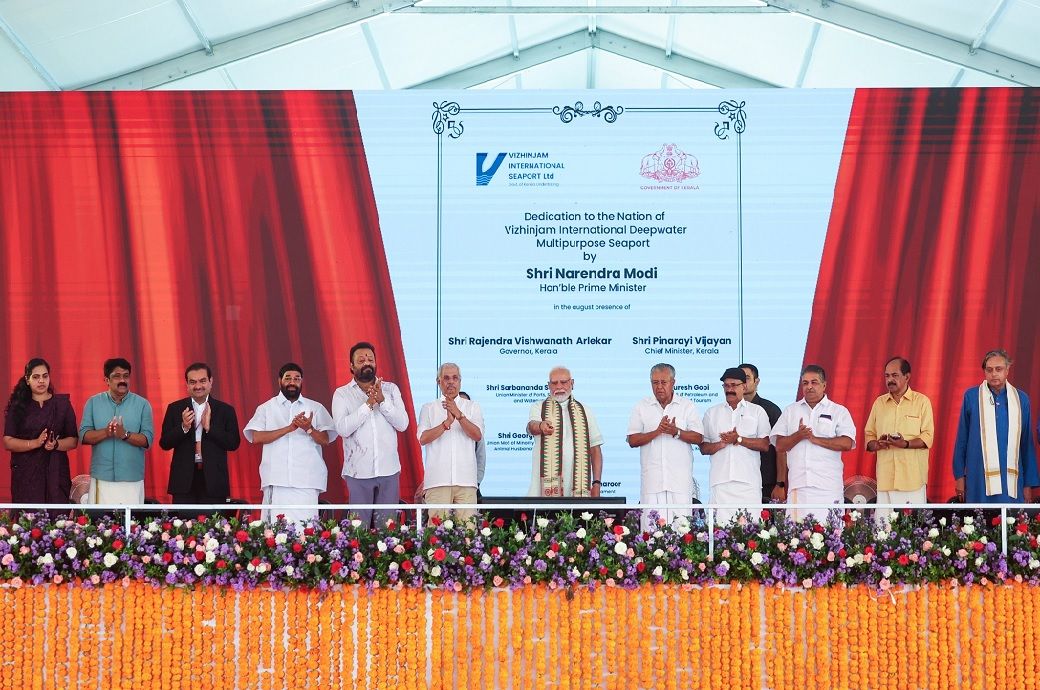
“The Vizhinjam International Deepwater Multipurpose Seaport in Kerala is a significant advancement in India's maritime infrastructure,” Modi wrote on microblogging platform X (formerly Twitter).
Three-quarters of India's transshipment cargo is presently handled at ports abroad like Singapore, Colombo, Salalah and Dubai, and Indian ports lose up to $200-220 million of potential revenue each year on transshipment handling of cargo originating in or destined for India.
Karan Adani, managing director of Adani Ports and Special Economic Zone (APSEZ), which built the port, said all transshipment cargo of the country will be handled from the new seaport within a year.
"Our ultimate goal is to reduce logistics cost by 30 per cent by increasing efficiency and reducing turnaround time," he was quoted as saying by media reports from the state.
The port’s location is the deepest in India and closest to international shipping routes.
Adani said APSEZ is targeting 90 per cent utilisation of the resources at the port.
Some of the transshipment ports benefit from the disruption created by reciprocal tariffs and India is, in a way, at a sweet spot, he added.
The port’s capacity in the first phase is 1 million TEUs, with an additional 4.5 million TEUs to be added in subsequent phases.
ALCHEMPro News Desk (DS)
Receive daily prices and market insights straight to your inbox. Subscribe to AlchemPro Weekly!